‘They’re Trying To Drown Us’ — Veterans React After Congress Punts on Marijuana Legislation
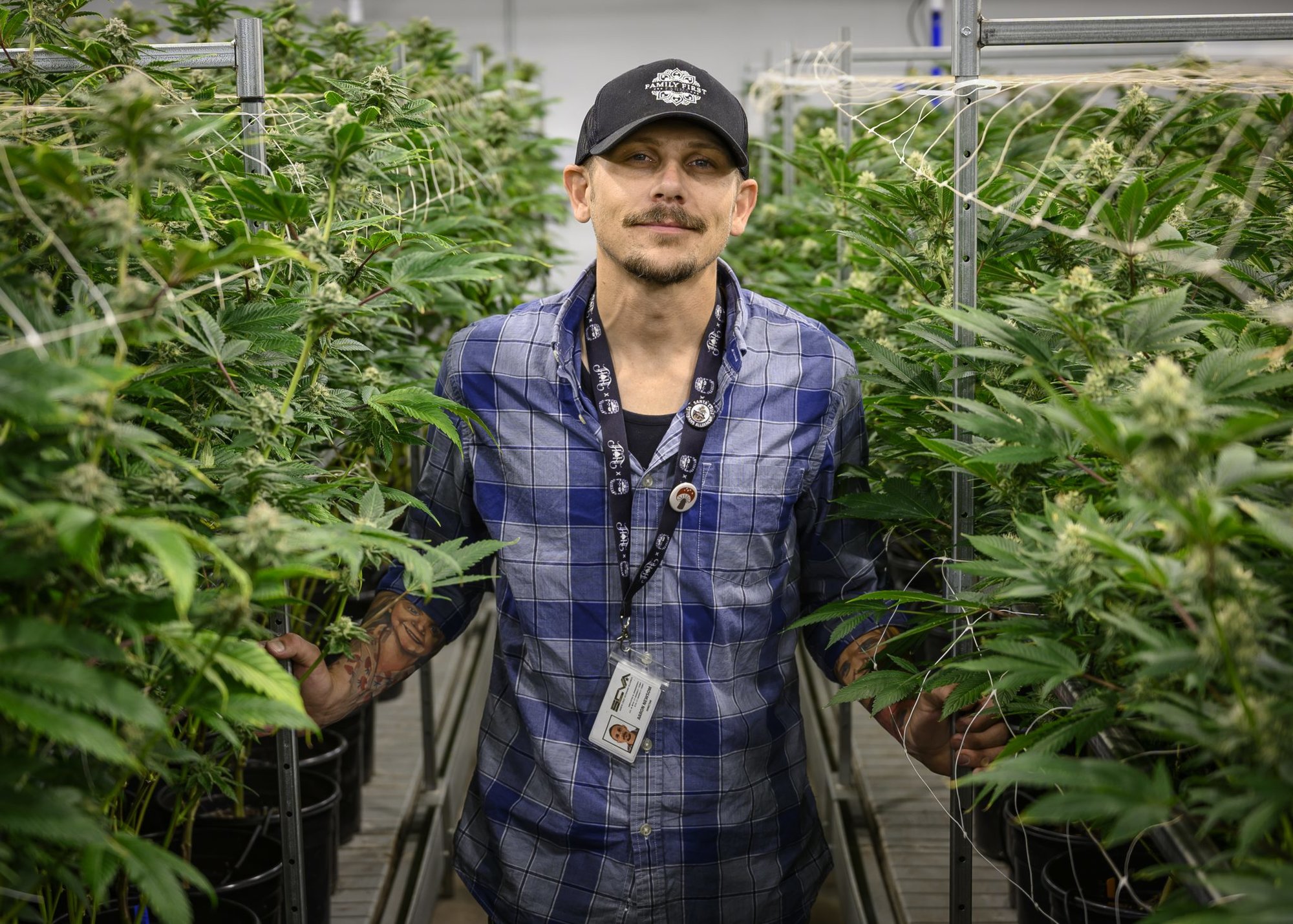
Marine veteran and Santa Cruz Veterans Alliance Chief Operating Officer Aaron Newsom with his mature cannabis plants at SCVA’s cultivation and distribution facility in California. Photo by Ethan E. Rocke/Coffee or Die Magazine.
After lawmakers in the US Senate last week dropped a provision in the National Defense Authorization Act that would have allowed the banking industry to do business with licensed marijuana retailers, US Navy veteran Seth Smith felt the weight of the decision, literally.
As the chief compliance officer for a veteran-owned cannabis production and distribution business in California, Smith or one of his business partners at the Santa Cruz Veterans Alliance has to make a weekly trip to SCVA’s bank to get roughly 75 pounds of change to support the mostly cash transactions the organization processes at its licensed marijuana dispensary in Santa Cruz County.
“Cash is such a hassle,” Smith told Coffee or Die Magazine. “We have a bank, but we’re only authorized to send and receive checks and electronic wire payments, get change, and make deposits, which we have to use an armored car service for. And the bank we work with demands even more oversight of our operations than the local jurisdictions and the state.”
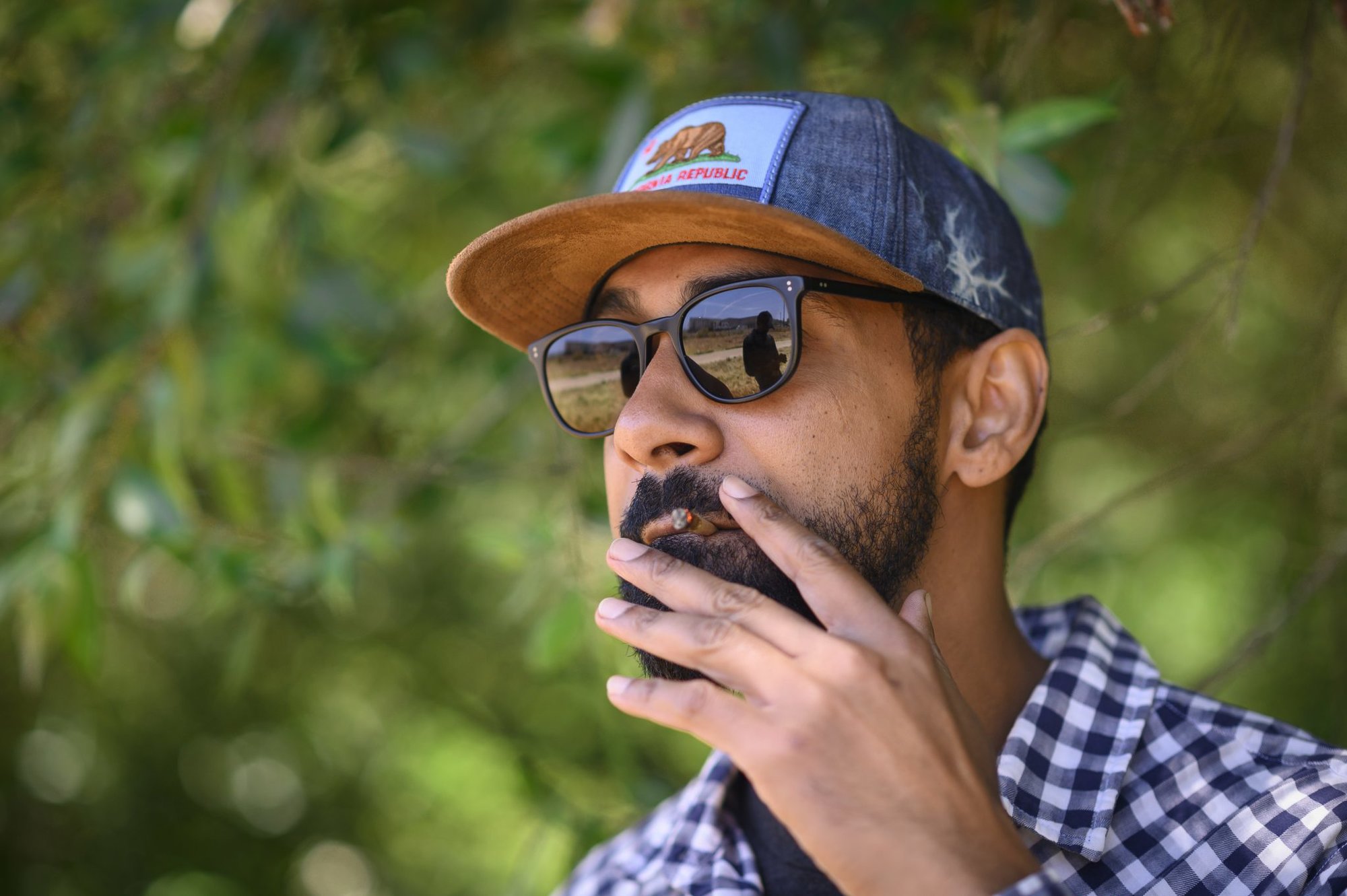
The Secure and Fair Enforcement (SAFE) Banking Act, which lawmakers in the US House of Representatives passed in April and attached to the NDAA in September, would have allowed the banking industry to do business with licensed marijuana retailers without fear of being penalized or prosecuted by federal authorities.
As many veterans turn to cannabis as an alternative treatment for a wide range of mental and physical issues related to their service, lawmakers in Congress have repeatedly failed to pass meaningful reforms called for by myriad veteran stakeholders, including some of the country’s largest and most influential veterans service organizations.
While federal law classifies marijuana as a Schedule I substance, defining it as having “no currently accepted medical use and a high potential for abuse,” 36 states and four US territories have legalized the medical use of cannabis products; and 18 states, two territories, and the District of Columbia have enacted legislation to regulate cannabis for nonmedical use, according to the National Conference of State Legislatures.
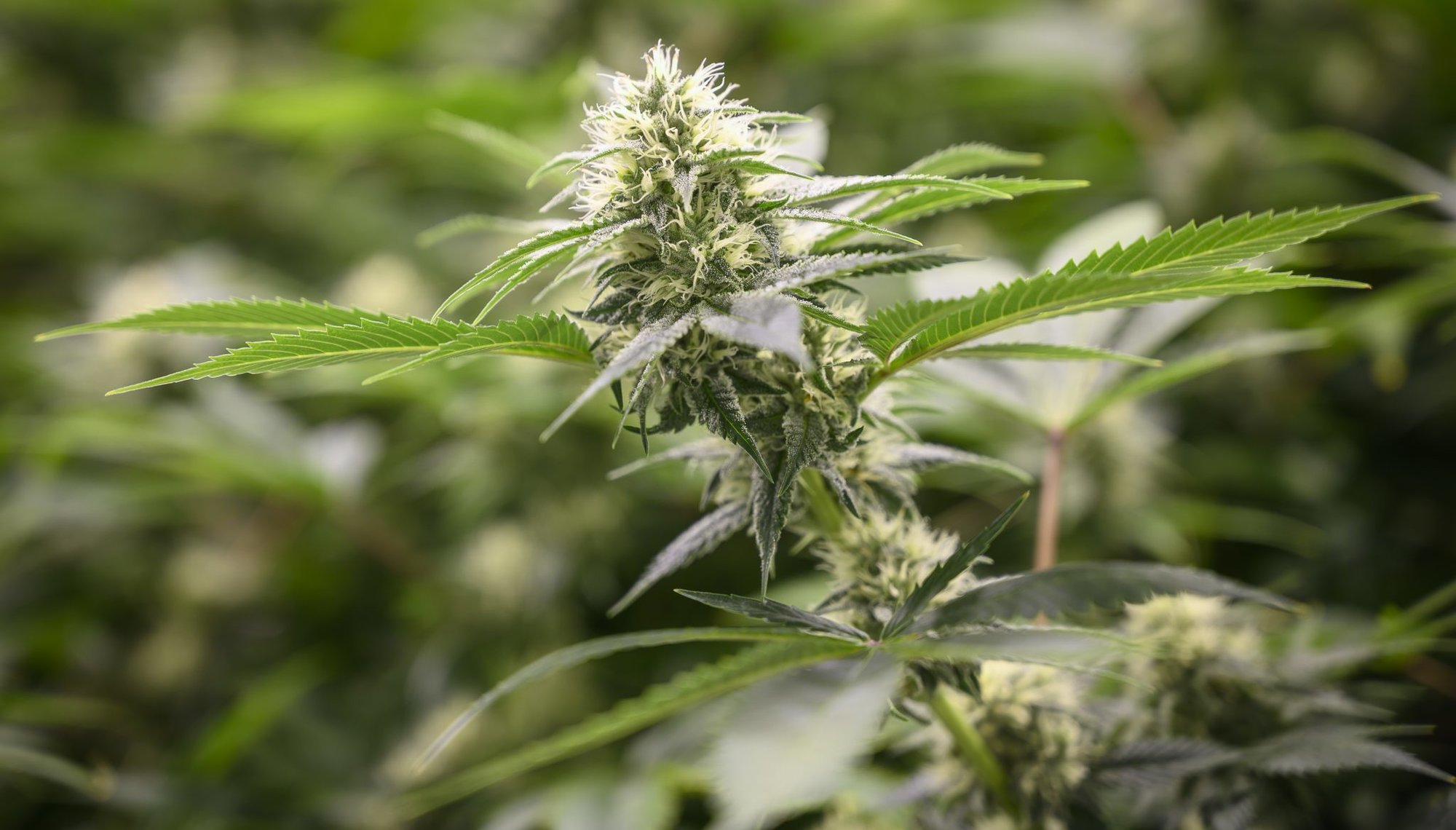
But individuals and entities who grow, possess, use, sell, transport, or distribute cannabis remain subject to federal criminal prosecution — including for commercial activities that are licensed and legally regulated under state laws. Colorado Rep. Ed Perlmutter, who sponsored the SAFE Banking Act, criticized the Senate for dropping the bill from the NDAA.
“People are still getting killed and businesses are still getting robbed because of a lack of action from the Senate,” Perlmutter said in a statement. “The SAFE Banking Act has been sitting in the Senate for three years and with every passing day their unwillingness to deal with the issue endangers and harms businesses, their employees, and communities across the country.”
In December 2020, Michael Arthur, a 44-year-old father who worked as a clerk at a cannabis dispensary in Portland, Oregon, was shot to death when his workplace was targeted by armed robbers. At the time, Portland cannabis shops had already been robbed, burglarized, or looted 95 times in 10 months, according to a report from the Portland-based newspaper Willamette Week.
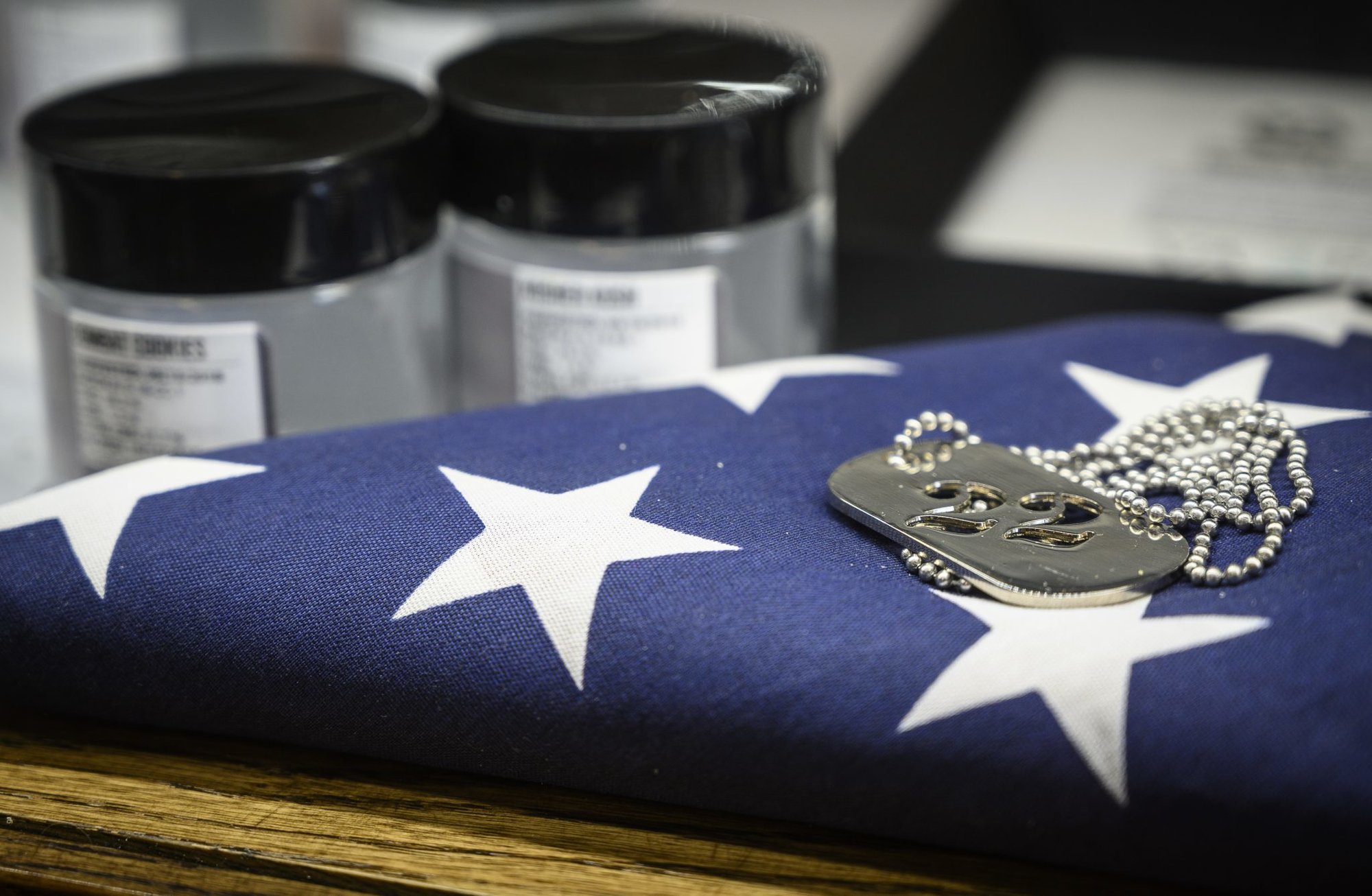
In Oakland, California, at least 25 cannabis businesses, including retail storefronts and cultivation and distribution centers, were burglarized last month, according to Forbes. Damages from the robberies are estimated at more than $5 million.
“Cannabis businesses in the Bay Area and Los Angeles were definitely targeted over Thanksgiving weekend, and many of the same businesses were also targeted last summer,” Smith said. “Some of those businesses are owned by social-equity licensees — people from the community who can barely afford to stay in business let alone deal with costs of lost merchandise and damaged property.”
Within the cannabis industry, “social equity” refers to efforts to leverage the legal marijuana industry to create new minority-owned businesses, jobs, and tax revenues for communities disproportionately harmed by marijuana prohibition and discriminatory law enforcement, according to the National Association of Cannabis Businesses.

While the SAFE Banking Act passed the House in April with wide bipartisan support, the measure ran up against opposition from key Senate Democrats who support a broader legalization bill. Senate Majority Leader Chuck Schumer and Sens. Cory Booker and Ron Wyden have co-sponsored the far more expansive Cannabis Administration and Opportunity Act, which would decriminalize marijuana at the federal level, expunge arrests and convictions for nonviolent marijuana offenses, and create grant programs aimed at creating opportunities for people disproportionately affected by the war on drugs.
Air Force veteran and cannabis business consultant Shaun Salvaje told Coffee or Die the SAFE Banking Act failed because the legislation wouldn’t do enough to ensure social equity remains a priority in the industry.
“Historically, when we look at banking in the United States and access to capital, there are racial and social disparities,” Salvaje said. “So the concern in the industry and among some members of Congress is that there are pros and cons to SAFE banking. The pro is, everyone needs access to safe capital — everybody across the board. But the cannabis industry was built on the backs of legacy operators and Black and brown communities who have stewarded cannabis up to this point. Now that we’re legalizing and industrializing, they’re not able to get access to capital, with or without safe banking.”
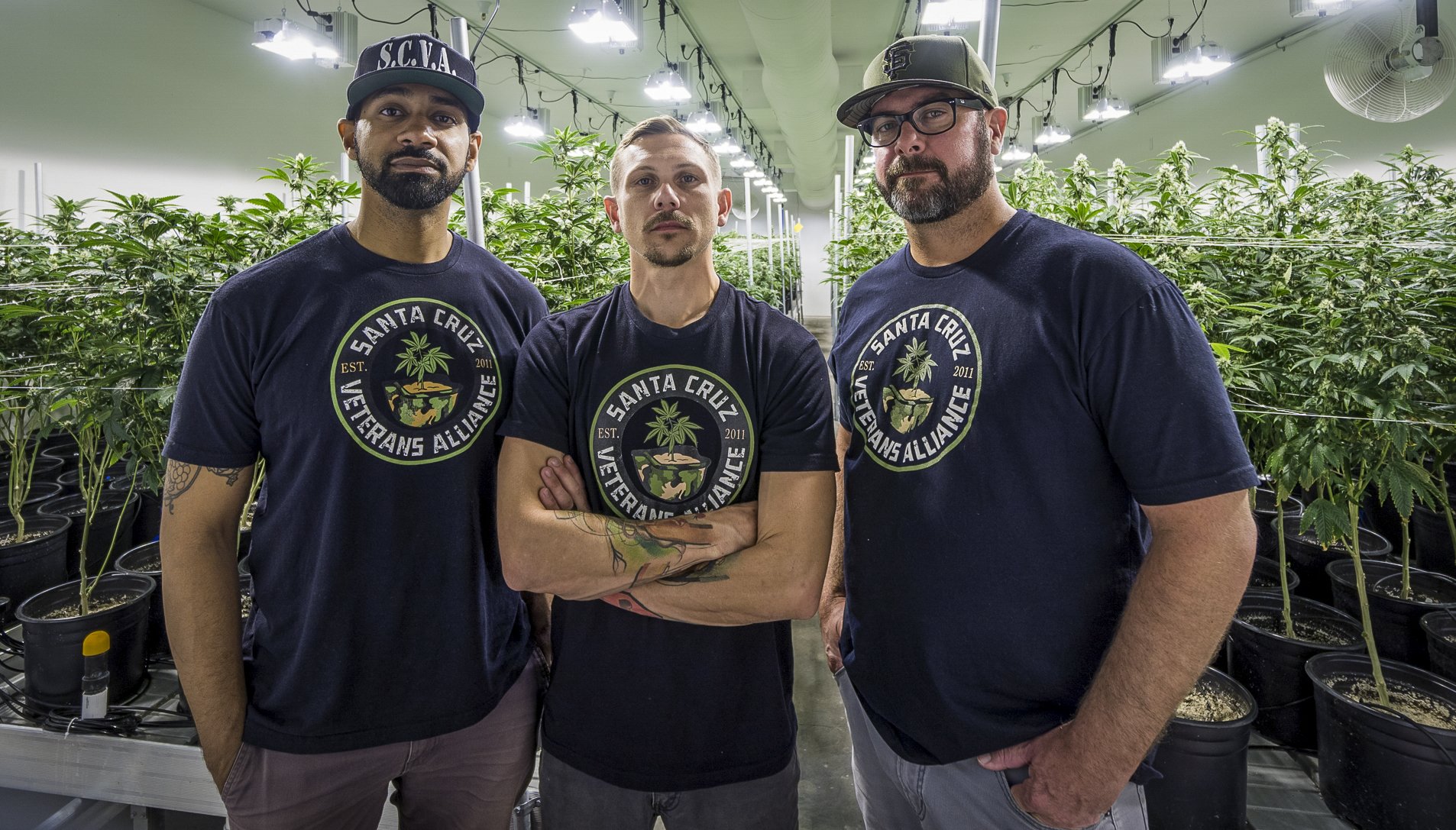
The Drug Policy Alliance (DPA), an influential advocacy group focused on promoting alternatives to the war on drugs, also opposed the SAFE Banking Act, voicing support instead for the Marijuana Opportunity Reinvestment and Expungement (MORE) Act, a more comprehensive bill similar to Booker’s that the House has approved multiple times.
“By slipping SAFE into the Defense Authorization bill ahead of moving the MORE Act, Congress is sending a clear message that the industry and huge multi-state operators take precedent before the countless people that have had their lives devastated by punitive and racially-motivated drug policies,” DPA said in a recent news release.
Air Force veteran Ron Millward is president of the Balanced Veterans Network, a nonprofit focused on education and advocacy for alternative therapies for veterans. Millward told Coffee or Die he supported the SAFE Banking Act as a “Band-Aid” solution.
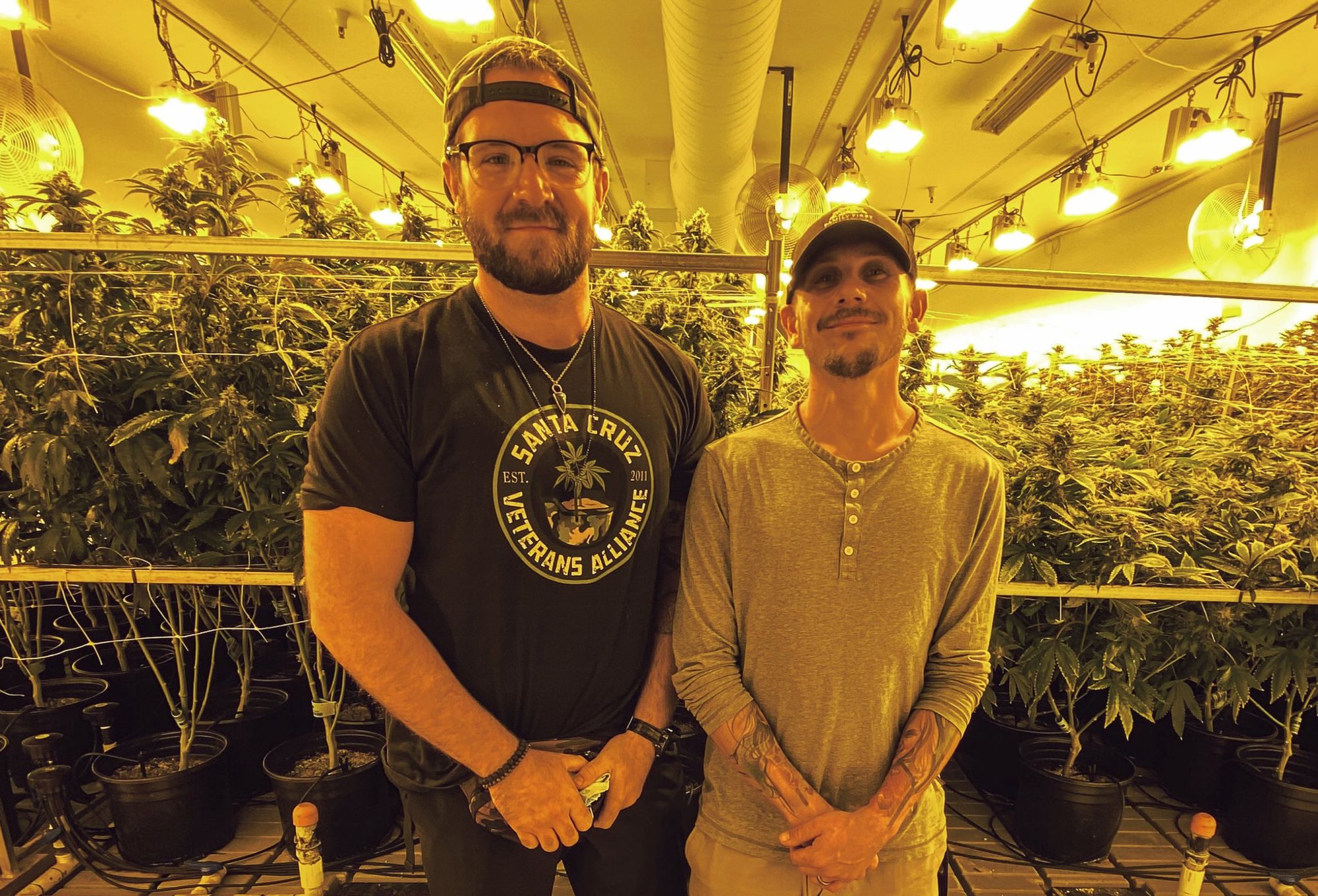
“There are so many minority and underserved business leaders right now that are entering the space, and this legislation would have at least helped move things forward for the industry,” Millward said. “Not passing this is really detrimental because a lot of veterans are trying to enter the space and find employment and jobs. Blocking this is a setback for the industry.”
President Joe Biden has not voiced support for any efforts to decriminalize marijuana at the federal level, and in October, Biden’s Department of Veterans Affairs opposed a bill that would require the VA to launch a series of clinical trials studying the therapeutic potential of marijuana for military veterans suffering with post-traumatic stress, chronic pain, and other issues. The bill was supported by multiple veterans service organizations, including Disabled American Veterans and the American Legion, which has advocated for “safe and efficient cannabis drug development research” since 2016.
Marine veteran and Santa Cruz Veterans Alliance COO Aaron Newsom told Coffee or Die that until Congress or the president take action to clear the path for expanded research into marijuana’s therapeutic potential, the federal government will remain out of step with the veteran community. Newsom and SCVA CEO Jason Sweatt — an Army veteran — launched the SCVA in 2011 with the mission of providing medicinal alternatives to the opioid painkillers and antidepressants often prescribed by VA health providers.
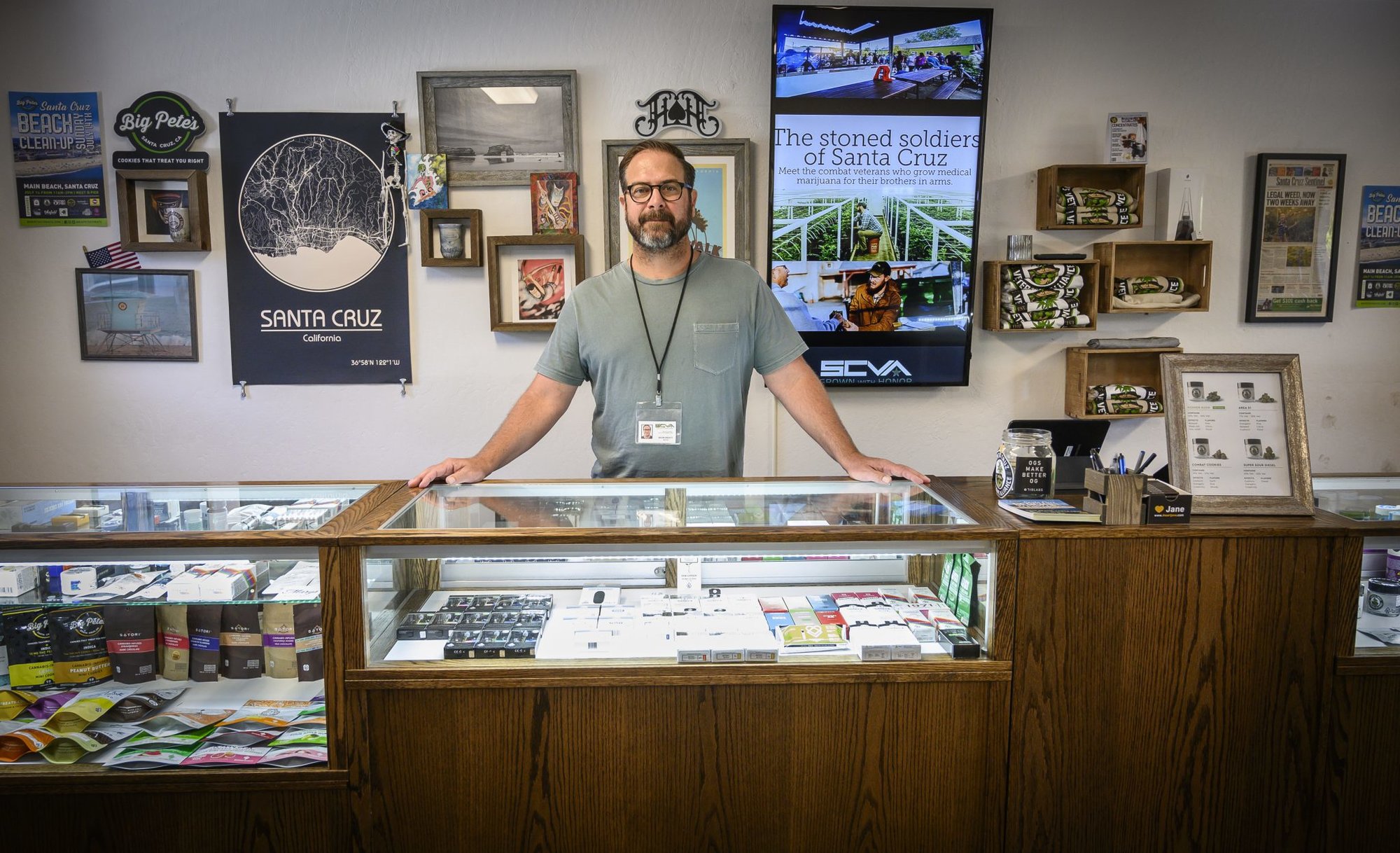
“After I got out of the Army in 2006, the VA gave me some pills and said, ‘Here, take this,’” Sweatt told Coffee or Die. “They just made me zombielike.”
Sweatt and Newsom experimented with cannabis as an alternative treatment and quickly realized that using and cultivating cannabis were more effective ways of treating their symptoms than the drugs they’d been prescribed by the VA.
“We found this amazing plant, and horticultural therapy was a big part of our healing,” Sweatt said. “Getting in the garden and getting your hands dirty and seeing some fruit and being able to taste that fruit and use that fruit for medicinal benefits is very therapeutic.”

SCVA is a social-equity business in Santa Cruz County, and the organization donates a portion of everything it grows to local veterans authorized to consume cannabis under California’s medical marijuana law.
“We knew cannabis was a medicine that was helping us, and we felt the need to help our fellow veterans understand that there’s a safer alternative out there,” Newsom said. “One of the main reasons most of us join the military is because we want to be of service, and that doesn’t stop when you get out of the military. So this was one way we felt we could give back.”
Since 2011, SCVA has donated more than $1 million worth of its medical cannabis. SCVA’s leaders said they were agnostic on the SAFE Banking Act because while it might have helped them and other cannabis businesses, without comprehensive reform, the federal prohibition of cannabis will continue to hinder efforts to expand access to cannabis for veterans. And it will continue to threaten businesses.
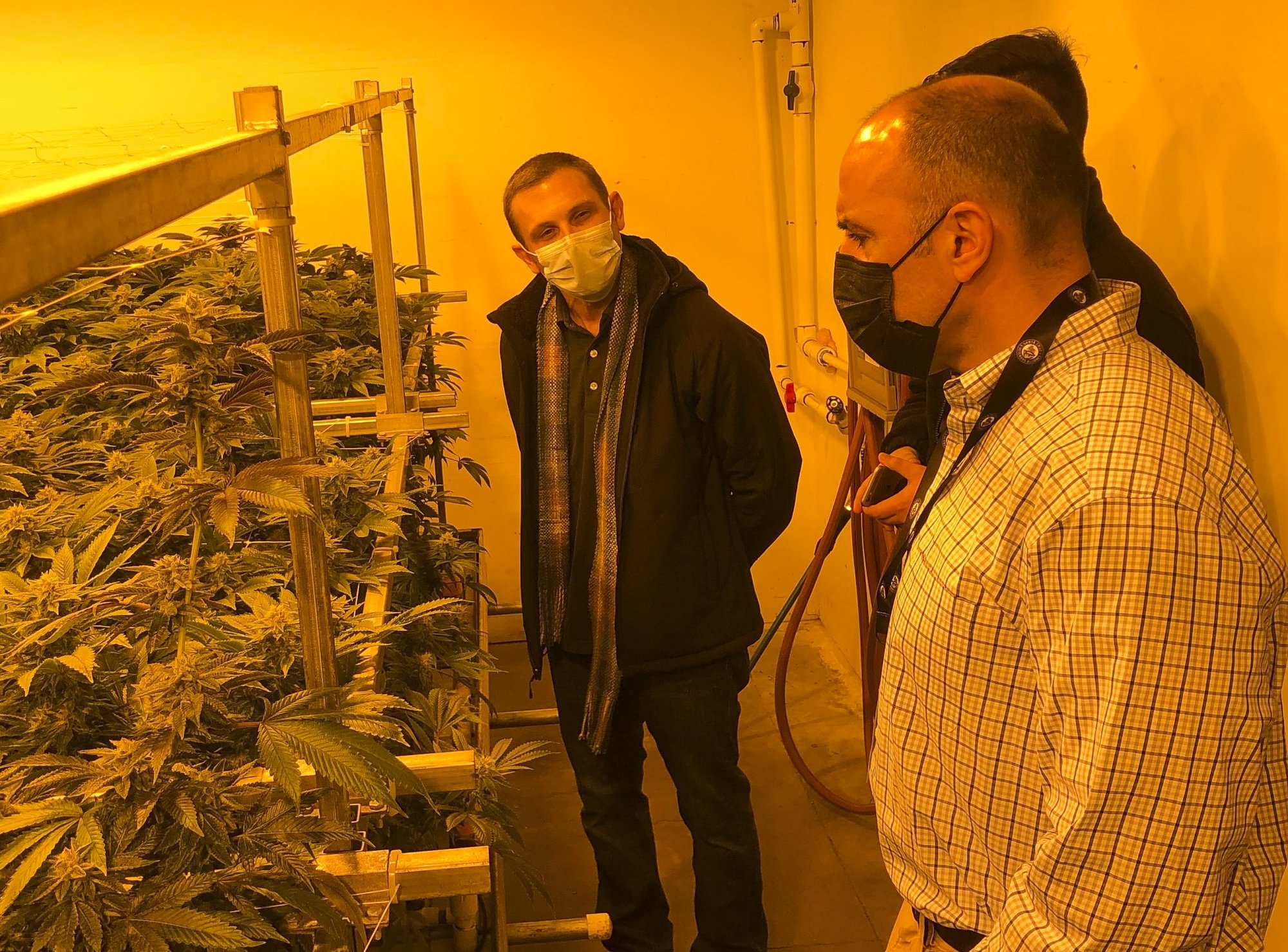
“Under current federal law, our options around finding financing are usually somewhere between ‘Grab your socks’ and ‘Go fuck yourself,’” Smith said. “We’ve had to build out multiple facilities on shoestring budgets while maintaining ongoing operations.”
Smith said without access to small-business financing options such as those provided by the Small Business Administration and the VA, veteran and minority businesses cannot compete with multistate operators, which are often funded by international conglomerates.
“They’re gobbling up market share like it’s Thanksgiving, but if we were to accept financing from an international group — a Canadian firm for example — we would be kicked out of our bank,” Smith said. “It feels like they’re trying to drown us slowly.”
Read Next: How Combining Cannabis and Coffee Impacts the Mind
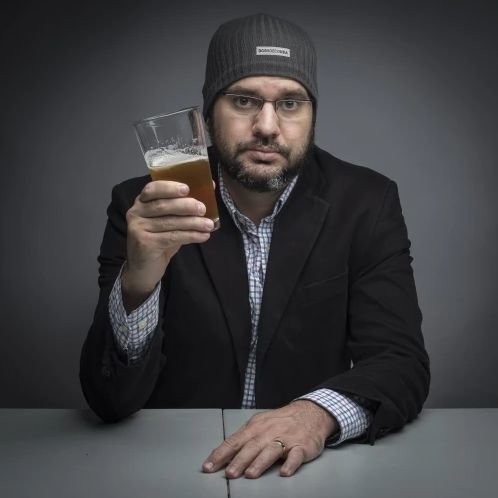
Ethan E. Rocke is a contributor and former senior editor for Coffee or Die Magazine, a New York Times bestselling author, and award-winning photographer and filmmaker. He is a veteran of the US Army and Marine Corps. His work has been published in Maxim Magazine, American Legion Magazine, and many others. He is co-author of The Last Punisher: A SEAL Team THREE Sniper’s True Account of the Battle of Ramadi.
BRCC and Bad Moon Print Press team up for an exclusive, limited-edition T-shirt design!
BRCC partners with Team Room Design for an exclusive T-shirt release!
Thirty Seconds Out has partnered with BRCC for an exclusive shirt design invoking the God of Winter.
Lucas O'Hara of Grizzly Forge has teamed up with BRCC for a badass, exclusive Shirt Club T-shirt design featuring his most popular knife and tiomahawk.
Coffee or Die sits down with one of the graphic designers behind Black Rifle Coffee's signature look and vibe.
Biden will award the Medal of Honor to a Vietnam War Army helicopter pilot who risked his life to save a reconnaissance team from almost certain death.
Ever wonder how much Jack Mandaville would f*ck sh*t up if he went back in time? The American Revolution didn't even see him coming.
A nearly 200-year-old West Point time capsule that at first appeared to yield little more than dust contains hidden treasure, the US Military Academy said.












